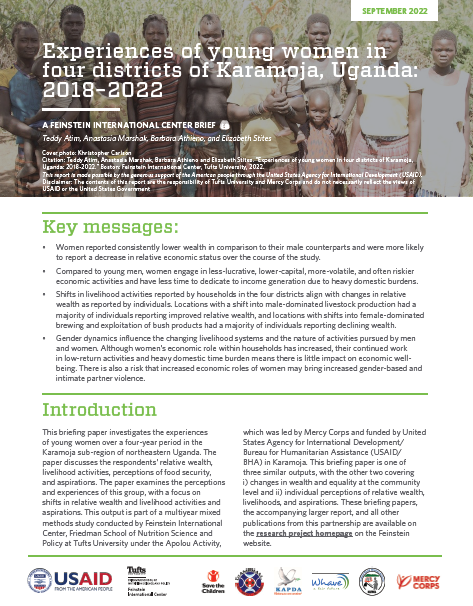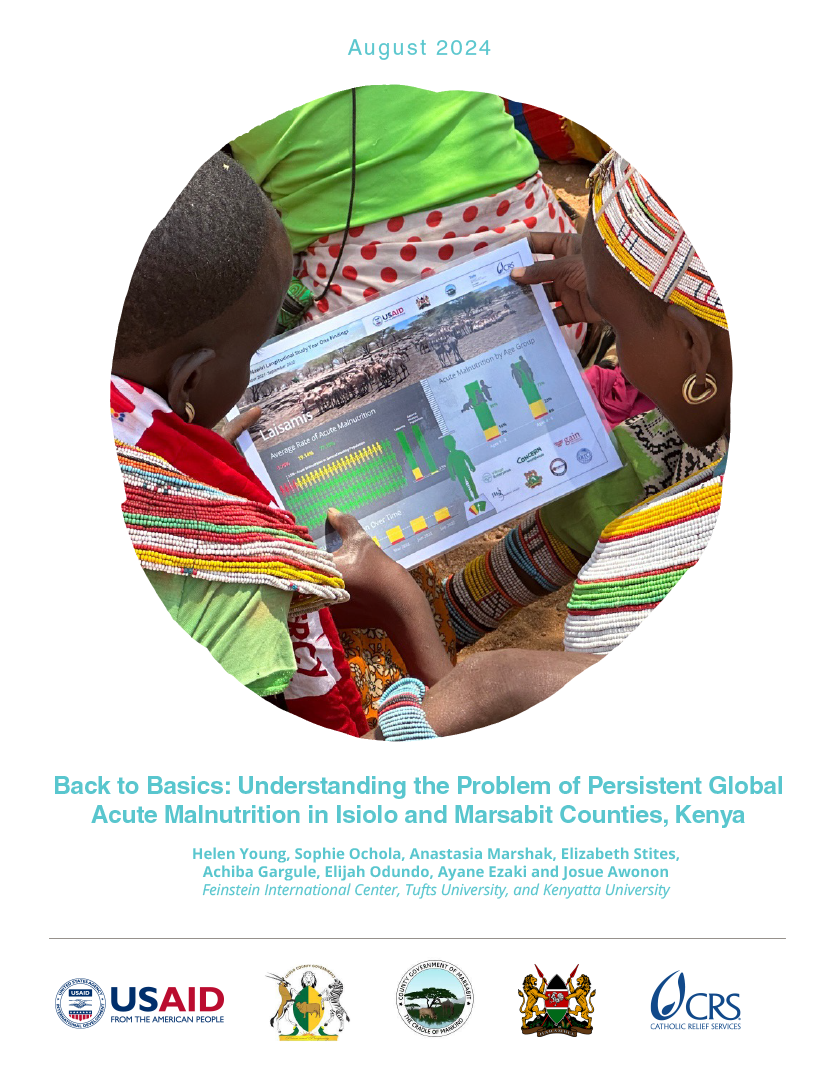This brief investigates the perceptions and experiences of young women in Amudat, Kotido, Kaabong, and Moroto Districts in the Karamoja sub-region of Uganda from 2018 to 2022. It specifically examines shifts in relative wealth, livelihood activities, and aspirations.
On average and when compared to men, women in the study experienced greater poverty and steeper decreases in relative economic status over the course of the study. Having a male household head was consistently associated with better wealth outcomes regarding poverty, livestock ownership, and asset ownership. Asset wealth increased if a household switched from having a female to a male head of household. Additionally, women often reported engaging in less lucrative and riskier economic activities. They also had less time to devote to income generation due to heavy domestic burdens.
Many women have seen an expansion of economic roles in their households, but often with few tangible economic gains. Additionally, there is a risk that increased economic roles for women may correspond to an increase in intimate partner violence.
At the district level, locations that saw a shift towards female-dominated, less-lucrative livelihood activities such as brewing and exploitation of bush products reported an overall decrease in relative wealth. In contrast, in locations characterized by a shift into male-dominated livestock production, a majority of individuals reported improved relative wealth. Such associations underline the importance of gender analyses when examining wealth and inequality and designing programming in the Karamoja sub-region.
These findings are based on both the quantitative and qualitative data emerging from four years of mixed-methods research under the Apolou Activity, in partnership with Mercy Corps and funded by USAID/BHA.







